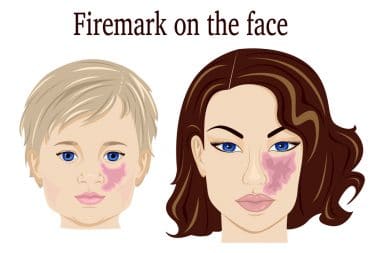Most people don’t realize that their skin is an organ. In fact it is the largest organ of the body. And as such, it has a wealth of information to tell us about our general health and what things are going on on a cellular level. Underneath the moisturizers and makeup there is a whole lot going on. Your pores are doing a very important job, as are your hairs and all the microscopic organisms that call your skin home. Let’s take a deeper look and listen at this epidermal organ to see what it’s telling you.
Acne
Acne can occur at any age, although it seems to occur most often during puberty. Remember puberty? It was the best and worst of times. Coming of age aside, experiencing acne can be very uncomfortable. The superficial reason for acne is follicles becoming clogged with debris (dead cells, dirt, oil, etc.) and becoming whiteheads, blackheads or pimples. This is why it’s so important to use an effective makeup remove.
On a deeper level your skin could be telling you that your hormones are not as blanched as they should be. Perhaps you’re under a lot of stress and have an excess build up of cortisol in your body. This could trigger excess sebum or oil production, clogging your pores and turning into acne. This is your body telling you that you need to do something to regulate the hormone levels in your body. Getting more rest, exercising more and drinking more water can be very helpful.
Alternatively, your liver may be the reason for your acne. The liver has very important work to do. It is like a water treatment facility for your blood. It monitors the levels of chemicals in your body and it filters your blood before allowing it to move on to the rest of your body. If your liver is unable to filter out toxins and unwanted compounds on its own, it will often choose to expel them through another outlet–usually your skin.
Dry and Itchy Skin
If you’re constantly experiencing dry or itchy skin, your body may be begging you for hydration. During the cooler seasons it is common to have dryer skin, especially if you are spending more time indoors than outdoors. Adding a humidifier to your home may help, as will increasing your water intake.
Your dry itchy skin can also be a sign of something deeper. Certain types of lymphoma can present with itching as a prominent symptom. Other diseases that whisper to us as itchy skin include diabetes and some thyroid disorders. If you fear that you may be suffering from a serious underlying illness, be sure to consult with your medical professional about your symptoms. Some testing may be in order to get to the root of the matter.
Rashes
Getting a rash is never much fun. They make you self conscious and they’re often rather uncomfortable. Although rashes are more common in childhood, they can show up at any stage of life. Contact dermatitis is quite common, and it typically means that you came into contact with something. But other types of rashes can be indicative of something deeper going on inside your body.
Rashes can be a symptom of a skin disease or point to another health concern in the future. For instance, psoriasis sufferers are at a higher risk of struggling with heart disease at some point in life. Lupus patients will sometimes present with a butterfly shaped rash on the face. And Lyme Disease often has a tell tale bull’s eye shaped rash.
When your skin is talking rash, it’s a good idea to listen. If a rash isn’t responding to topical treatment, it begins to spread or you start to experience pain or fever, please seek medical attention as soon as you can.
Discoloration
Sometimes skin can become discolored. When this happens it could be a sign that your kidneys or liver isn’t functioning well or properly. Yellowish or orangish discolorations are common with liver and kidney issues. When brown or tan spots show up on your shins, your blood may not be circulating as well as it should be. This decreased circulation can lead to ulcers. It’s important to note that some of these color changes will appear different on darker skin. Discoloration in people of color looks very different. For instance, rashes will be more purplish. This is why a dermatologist is an integral part of truly hearing what your skin is trying to tell you about your overall health.
Dandruff
Sure, dandruff is annoying and maybe even a bit embarrassing. But dandruff, also called seborrhea, can also be a sign of something going on neurologically. Those with Parkinson’s Disease or a history of stroke are at a higher risk of experiencing or developing severe dandruff. HIV patients are also more likely to have seborrhea.
Skin Tags
Skin tags are small raised bumps that look more like sacs than bumps. Skin tags can signal high blood sugar levels or insulin resistance. They tend to be more common in women, elderly persons and those who are overweight. They can be removed by a dermatologist or fall off on their own if they lose their blood supply.
Bruising
Sometimes we run into things. And these run ins may sometimes result in some bruising. But if you find that everytime you bump into something you experience bruising, your body may be vitamin deficient. Vitamin C is most likely the one that is lacking the most. Vitamin C is vital to the production of collagen and its pairing to other compounds that affect skin and its blood vessels.
If you notice changes in your skin, you don’t usually need to run to your local emergency department. Stay calm and be observant. Many of the manifestations we find on our skin can be alleviated by increasing hydration and making some adjustments to our diet and activity level.
Take some time to really see what’s going on and check in with how you’re feeling. Schedule an appointment with your dermatologist or primary medical care provider to ask questions and work towards an answer.








Reply